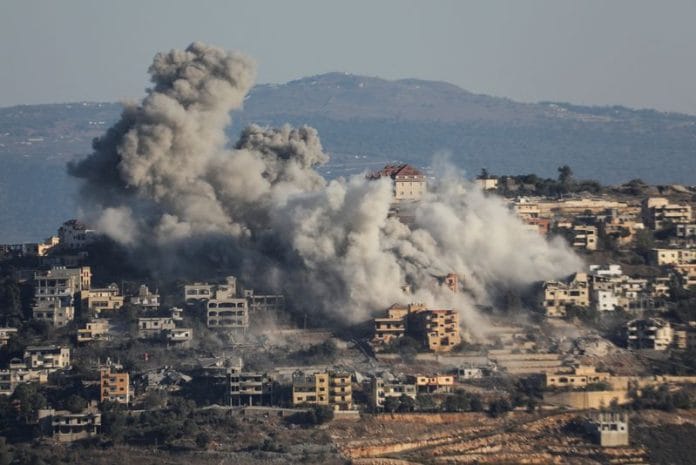New Delhi: India urged Tel Aviv and Tehran to avoid further escalation, hours after Israel announced that it had carried out airstrikes on Iran in the early hours of Saturday. The attacks were carried out in retaliation for strikes conducted by Tehran earlier this month.
“We are deeply concerned by the evolving escalation in West Asia and its ramifications for peace and stability in the region and beyond. We reiterate our call to all concerned to exercise restraint and return to the path of dialogue and diplomacy,” said the Ministry of External Affairs (MEA) in a statement.
The statement added: “The ongoing hostilities are to nobody’s benefit, even as innocent hostages and civilian populations continue to suffer. Our missions in the region are in contact with the Indian community.”
New Delhi’s comments come as Tehran has reiterated its right to “defend itself” following the early morning strikes by Tel Aviv. West Asia has been on a knife-edge following Iran’s launch of nearly 200 ballistic missiles on 1 October at Israel in retaliation for the killing of Ismail Haniyeh—the then political chief of Hamas—in Tehran in July this year.
“Iran categorically condemns the Zionist regime’s aggressive action against several military centers in Iran, considering it a clear violation of international law and the UN Charter, especially the principle of prohibiting threats or resorting to force against the territorial integrity and national sovereignty of countries,” said the Iranian foreign ministry in a statement after Israel’s airstrikes.
However, in a signal that another round of escalations may not occur, at least by Tehran, the foreign ministry also referred to the country “recognising its duties toward regional peace and stability”—a statement that could be seen as conciliatory in tone.
German Vice Chancellor Robert Habeck, speaking to the press in New Delhi at the end of his visit to India Saturday, also called for “deescalation” in the region, adding to the chorus of countries such as Saudi Arabia and the United Arab Emirates calling for restraint between Israel and Iran.
Israel has warned Iran against any further escalation, with its military saying that if a new round of escalation were to begin, Tel Aviv would be “obligated to respond”.
Tehran has confirmed that the airstrikes were aimed at three locations—military centres in Tehran, the western province of Ilam and the southwestern province of Khuzestan. The Iranian Army has confirmed that two soldiers were killed in the Israeli airstrike.
The West Asian country maintains that Israel’s airstrikes caused “limited damages” and that its electrical grid and oil facilities are “operating normally”.
Fears of open war as violence escalates
Countries around the world, especially in West Asia, have been waiting for over three weeks for Israeli strikes on Iran following the ballistic missile attacks. It was the second time in history that Iran launched missiles directly at Tel Aviv.
The first time occurred earlier this year in April, when Tehran retaliated against Israel by launching a barrage of missiles and loitering munitions following Tel Aviv’s airstrikes against an Iranian diplomatic compound in Damascus, Syria.
These rounds of violence have created serious fears of open war between the two West Asian countries.
Since 7 October 2023, tensions in the region have continued to rise, following Hamas’ attack on Israel, which left nearly 1,200 Israelis dead and saw a further 250 taken hostage. Tel Aviv has since carried out an invasion of Gaza, which has left over 42,000 Palestinians dead, while large parts of the strip have been laid waste.
Earlier this month Israel killed Yahya Sinwar, the leader of Hamas and considered to be one of the architects of the 7 October 2023 attacks. Despite facing a number of losses to its leadership, Hamas continues to operate in Gaza, with a ceasefire nowhere close to being finalised. Around 101 people continue to be held by Hamas.
In the past few months, Tel Aviv has also expanded its operations to include southern Lebanon—the stronghold of Hezbollah, the Lebanese armed militia and political party. Hezbollah has also seen a series of its senior leaders killed in Israeli strikes, including longtime leader Hassan Nasrallah.
Last week, India sent around 30 tonnes of medicines to Lebanon as part of its humanitarian efforts.
(Edited by Rohan Manoj)
Also read: Modi pitches for peace in Ukraine, discusses India-Russia economic ties with Putin at bilateral meet






